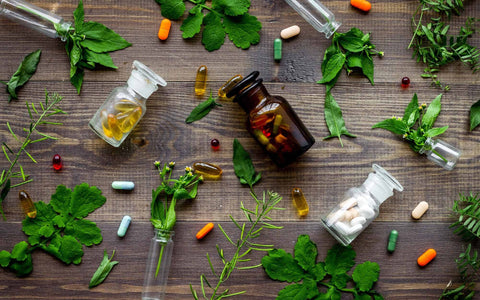We all know how scary cancer is. It’s the second leading cause of death globally, with the most recent stats estimating 20 million new cancer cases and 9.7 million deaths each year. To put that into perspective, there’s a one in five chance that you’ll develop some form of cancer in your lifetimes, and while most forms of cancer are treatable, approximately one in nine men and one in 12 women will die from the disease.
A lot of what we can do to reduce the risk of cancer has to do with lifestyle. There are some factors that are out of our control – we can’t do anything about our genetics, age, and some environmental exposures, after all. However, there are also lifestyle choices that can make a difference, and a big one here is making sure that you’re eating a healthy diet.
This is where Good & Fugly comes in. The fresh fruit and vegetables found in every box might not be the cure for cancer, but it can surely help minimise the risk!
How do fruits and vegetables help in the battle against cancer?
Fruit and vegetables are rich in a range of things, including fibre, vitamins, minerals, antioxidants and phytochemicals, which are natural substances that have various beneficial effects on the body. As part of a generally healthy lifestyle that also includes exercise, these features of fresh produce help to fight cancer by:
- Protect the cells from damage caused by free radicals, which are unstable molecules that can harm the DNA and trigger cancer.
- Reduce inflammation, which is a process that can contribute to cancer development and progression.
- Modulate the immune system, which is responsible for fighting off infections and eliminating abnormal cells, and can help fight off the very earliest stages of cancer.
- Regulate the hormones, which can influence the growth and behaviour of some types of cancer cells.
- Enhance the detoxification of harmful substances, such as carcinogens, which are agents that can cause cancer.
Is this backed by science?
Yes, it is. Numerous studies have shown that eating more fruit and vegetables can lower the risk of developing certain cancers, especially those of the digestive tract, such as the bowel, mouth, throat and stomach. Here are the findings of one, often-sited study by Oxford University: “Fruit and vegetable intakes were associated with reduced risk of cardiovascular disease, cancer and all-cause mortality. These results support public health recommendations to increase fruit and vegetable intake for the prevention of cardiovascular disease, cancer, and premature mortality.”
Here's another from a major medical university in China: “High intakes of citrus, apple, watermelon, and kiwi reduced CRC risk by 9%, 25%, 26%, and 13%, respectively, compared with low intakes.” (CRC, Colorectal cancer, is the third most common form of cancer).
The science isn’t settled, which is why you will always see reports that say that “eating fruit and vegetables may protect against cancers,” but that disclaimer has to do with the lack of certainty about the exact impact that a healthy diet has on preventing cancer. While the specifics are elusive, however, what is quite certain is that fruit and vegetables do have some positive impact on reducing the risk of cancer.
So, how many fruit & vegetables should you be eating?
The World Health Organization recommends eating at least 400 g (five portions) of fruit and vegetables per day, excluding potatoes, cassava and other starchy roots. Alternatively, the American Cancer Society recommends eating at least two and a half cups of a variety of vegetables and fruits each day. Locally, the Cancer Council of Australia recommends eating at least five serves of vegetables and two servings of fruit per day.
A serving of vegetables is equivalent to half a cup of cooked vegetables, one cup of salad or raw vegetables, or half a cup of legumes. A serving of fruit is equivalent to one medium piece of fruit, two small pieces of fruit, one cup of fruit salad or canned fruit, or half a cup of juice.
To get the most benefits from fruit and vegetables, it is advisable to eat a variety of colours, such as red, green, yellow, orange, purple and white. Not only does that look good on the plate, but it also offers a wide variety of nutrients that boost protection in different ways. It is also preferable to eat them fresh, raw or lightly cooked, as some nutrients may be lost or destroyed by heat, water or processing. Moreover, while the nutrients might be there, is important to limit the intake of fruit juices, dried fruits and canned fruits with added sugar, as they are high in energy and may contribute to weight gain, and that is a risk factor for many cancers.
There is, unfortunately, no cure for cancer, but eating more fruit and vegetables is one of the simplest and most effective ways to improve your health and reduce your cancer risk. And it’s not like it’s a chore! With a box of fresh goodness from Good & Fugly, you have more than enough flavour and variety to make healthy eating an absolute joy. You’ll feel better, be more active, and do the best that you can to maintain your body’s defences against the myriad of health risks out there.



